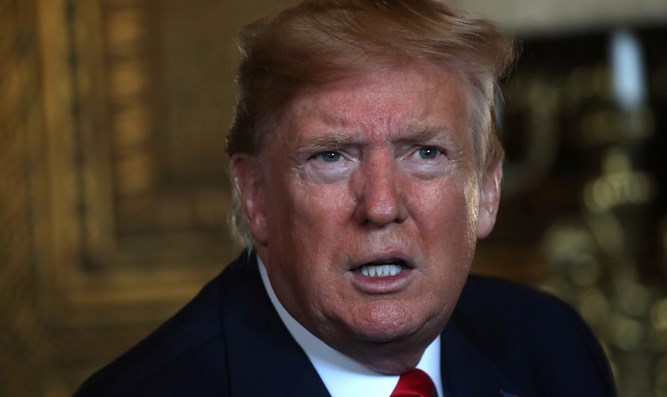This is one of those articles that is going to be very difficult to refute…
H/T: Brian of London
In making Iran accountable, Trump has knocked Iran down to its natural size—and likely made Americans safer from Iranian aggression than they have in fact been at any point in the last 40 years, during which Iranian proxies have repeatedly killed large numbers of Americans. Killing Soleimani is a much more important operation than those targeting ISIS leader al-Baghdadi and even bin Laden, since it will likely shape the future actions of a state, not the leadership rotation of terror groups.
Iran and America Are Suddenly Both Naked
By taking decisive action against Soleimani, Trump showed that Iran’s power is an illusion generated by D.C.’s willingness to look the other way
It’s no coincidence that in the wake of the targeted killing of Quds Force commander Qassem Soleimani, Iran’s most important military proxy has begun taking credit for terror attacks committed nearly four decades ago. For example, Hezbollah-affiliated media and activists are laying public claim to the organization’s responsibility for bombing of the U.S. Marine barracks in October 1983, which killed 241 Marines. So why now?
The answer is, to scare Americans now that Donald Trump has thrown the regime in Tehran off balance by changing the 40-year-old rules of the game. The United States always knew that Hezbollah was responsible for the Marine barracks attack and that the Lebanese militia was armed, trained, funded and directed by Iran. President Reagan’s decision not to respond directly to the attack was part of a tacit agreement that America and the Islamic Republic entered into during the 1979 U.S. Embassy takeover in Tehran. It mirrored similar arrangements with the Soviet Union in which neither superpower held the other directly accountable for the actions of proxies in order to reduce the likelihood of a nuclear cataclysm.
Yet, unlike the Soviet Union, the Islamic Republic was hardly a globe-spanning nuclear superpower. It was merely a hostile local power that threatened the American regional security order through terror attacks. Washington’s response was to look away, under the theory that it was beneficial to the larger order to pretend, in public, that rules still existed. In turn, Iran was happy to play make-believe and accumulate prestige and leverage.
The terms of this weird deal held fast for the next four decades, through the end of the Cold War, the collapse of the Soviet Union, the First and Second Gulf Wars, Bush’s occupation of Iraq, Obama’s Iran deal, and other local and global milestones. Washington wouldn’t hold the clerical regime accountable for the violent proxies that it funded, armed, trained, and directed. In exchange, Iran and its partners would refrain from embarrassing the Americans by boasting about the murders they committed. The founder of the Islamic Republic, Ayatollah Ruholla Khomeini, famously said that America couldn’t do a damn thing. It is more accurate to say our elected officials wouldn’t do a damn thing.
Donald Trump put an end to that arrangement by commingling the dust of Soleimani together with that of one of his chief Arab lieutenants, Abdel Mahdi al-Muhandis, head of one of Iran’s Iraqi terror proxies. Now that Trump is holding Iran accountable for the actions its proxies take in its name, the leverage gained by helping America play make-believe is gone. Iran and its allies now feel liberated to bathe publicly in the blood of Americans and warn that more violence is coming their way.
The problem for Iran is that it isn’t actually all that powerful. For all the concern over retaliation, Trump’s trashing of the old rulebook has stripped Iran of the most important instruments in its arsenal—“plausible deniability.”
Iran’s ability to respond to the U.S. was already limited by the fact that its conventional military forces are old and rusting away. Yes, IRGC speedboats can harass, and target, the U.S. Navy in the Persian Gulf. But it can’t move large land forces into Iraq, never mind drop them into Florida or Alaska.
A good measure of Iran’s military weakness is that Qassem Soleimani was commander not of its regular army but rather the Quds Force, the expeditionary unit of Iran’s parallel military structure, the Islamic Revolutionary Guards Corps (IRGC). The Quds Force is relatively small, with estimates ranging from 3,000 to 15,000 fighters–i.e., a force the size of Hezbollah. For protracted campaigns like the Syria war, the Quds Force relies on what Israeli analyst Shimon Shapira calls the Shiite International—paid militias drawn from Middle East and Central Asian countries with Shiite populations, like Lebanon, Iraq, Syria and Afghanistan.
The threat that Iran poses to a superpower America is “asymmetric”—kidnappings, embassy attacks, hijackings, bombings, etc., typically conducted by Iranian proxies. The military experts and political scientists who coined the term usually fail to note that the ability to wage “asymmetric” warfare is wholly dependent on an adversary’s willed blindness. If Iran’s targets decide to unsubscribe to the fiction that the Islamic Republic is not directly responsible for the actions of its proxies, Iran is rendered virtually powerless–with terror attacks being met with direct military hits on Iranian bases, airfields, ports, power plants, dams, and other infrastructure.
It is only because Americans and other Western powers have declined to call out Iran and have instead appeased it, that an obscurantist regime whose major exports are energy, pistachios—and terror, of course—appears like a formidable adversary.
In making Iran accountable, Trump has knocked Iran down to its natural size—and likely made Americans safer from Iranian aggression than they have in fact been at any point in the last 40 years, during which Iranian proxies have repeatedly killed large numbers of Americans. Killing Soleimani is a much more important operation than those targeting ISIS leader al-Baghdadi and even bin Laden, since it will likely shape the future actions of a state, not the leadership rotation of terror groups.

